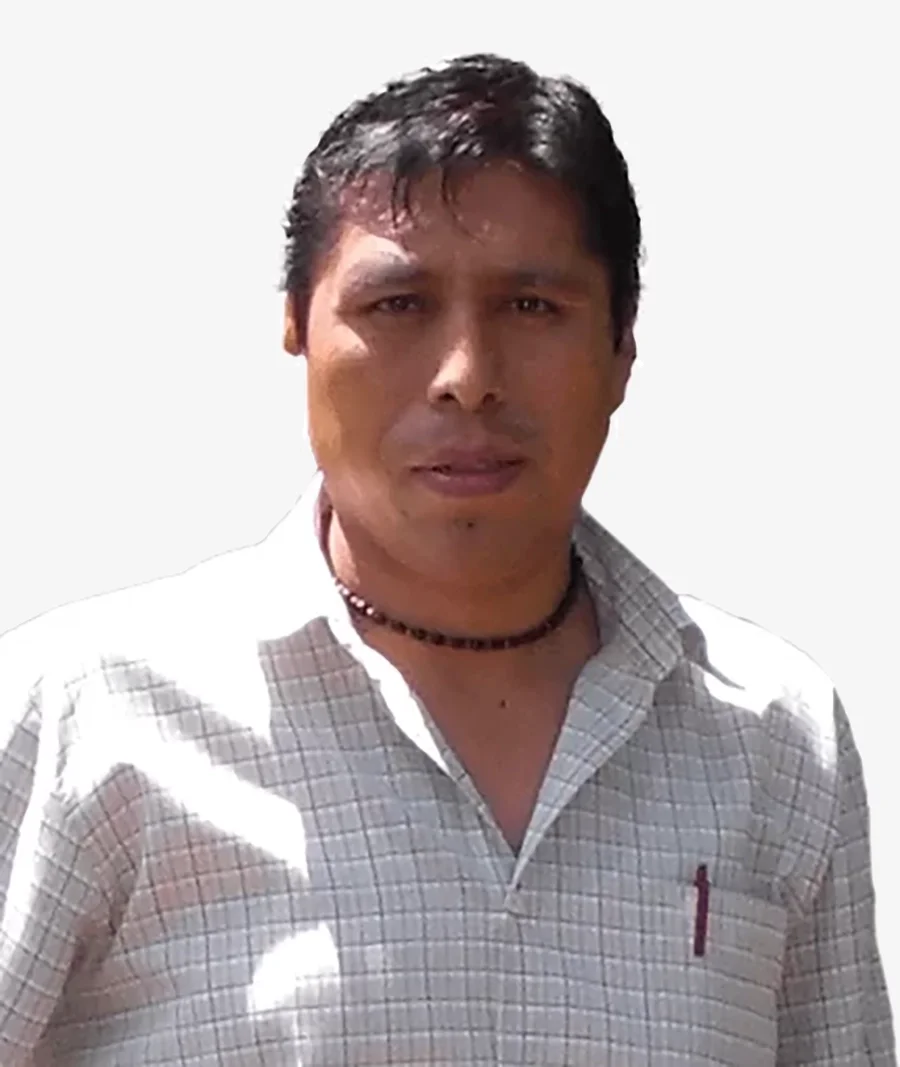Local and Community Partners
-

Marcelo Guevara
Andes Conservation Imperatives
Marcelo joined Andes Amazon Fund as a Program Officer in February 2022. He has more than 20 years of experience working with local stakeholders and Indigenous organizations in Latin America on protected area creation and management, land use planning, integrated watershed management, ecosystem service analysis, and developing data-driven decision support tools for environmental management. Before coming to the Andes Amazon Fund, Marcelo led projects at Stanford University’s Natural Capital Project to research environmental services in Latin America.
Prior to this, Marcelo worked for The Nature Conservancy in several positions such as Regional Manager for the Andean Amazon, Science Director, and Spatial Information Program Manager for Latin America and the Caribbean. He graduated as a Geographic Engineer from the Polytechnic School (ESPE) in Quito, Ecuador. He completed post-graduate studies in remote sensing and Geographic Information Systems at the Spatial Research Institute (INPE) in Brazil, Stockholm University, the European Space Agency (Italy), and the French Space Agency. He also holds a Masters in environmental management from the Polytechnic School (ESPE).
-

Megan MacDowell
Andes Conservation Imperatives
Megan MacDowell is Executive Director of the Andes Amazon Fund, where she has worked to designate over 40 million acres of new protected areas since the Fund was established in 2014. Overall, Megan has spent 20+ years focused on protecting Latin America’s rainforests. Prior to joining the Andes Amazon Fund, she served for seven years as Director of the Amazon Conservation Association, where she developed and implemented biodiversity conservation and sustainable livelihood projects in Peru and Bolivia.
Megan has been key in organizing the Andes Conservation Imperative site reviews —working with Marcelo and Pedro in a GIS analysis of CI sites that have been protected, are in progress of protection or are in need of new granting for protection. In past focus projects, Megan has developed communications strategies for projects in Conservation International’s field programs and conducted research for The Nature Conservancy’s Brazil program. Megan holds a master’s degree in sustainable development and conservation biology from the University of Maryland and a bachelor’s in biology and environmental studies from Swarthmore College.
-

Pedro Tipula
Andes Conservation Imperatives
Pedro is a GIS Consultant for Andes Amazon Fund. As a geographer and researcher specialized in GIS, he has extensive experience in territorial planning and management in the Andean-Amazonian space. He contributes in generating cartographic information, studies and publications on indigenous peoples and the threats they face in the Andean Amazon. In addition, he has been a part of several transboundary cooperation networks such as RAISG, LandMark and ILC. He has a master's degree in Land Management and Land Use Planning and lives in Lima, Peru.
In 2024 - 2025, Pedro has been key in organizing the Andes Conservation Imperative site reviews —working with Megan and Marcelo in a GIS analysis of CI sites in the Andes Amazon region of South America — mapping which have been already protected (but as new or sub-national PA’s weren’t yet on global maps), which are in progress of protection, and which are in need of new funding for proposed protection.
Collaborators and Advisors
-

Neil Aldrin Mallari, PhD
Philippines Conservation Imperatives
Neil Aldrin Mallari is the Regional Focal Point of the IUCN World Commission on Protected Areas (2021-2025), a National Geographic Explorer (2016), an Ashoka Fellow, and a biodiversity conservation practitioner and advocate. He is the founder/co-founder of a number of biodiversity conservation NGOs in the Philippines including the Wildlife Conservation Society of the Philippines and Center of Conservation Innovations PH where he is the President.
He has influenced important conservation policies and investment portfolio for biodiversity conservation. Aldrin completed his undergraduate from the University of the Philippines-Los Banos and his PhD from Manchester Metropolitan University, UK. He has written more than 40 scientific publications including two award-winning and seminal conservation books: “Threatened Birds of the Philippines” and “Key Conservation Sites in the Philippines” and the Sukat ng Kalikasan (Nature Metrics) toolkit. Aldrin is concurrently an Ecology professor at De La Salle University and the Far Eastern University in the Philippiness.
-

Binbin Li
China Conservation Imperatives
Dr. Binbin Li is a lead author on the Conservation Imperatives paper and the Associate Professor of Environmental Sciences at the Environmental Research Center at Duke Kunshan University. She holds a secondary appointment with the Nicholas School of the Environment at Duke University. She focuses on the synergy between biodiversity conservation and sustainable development under climate change. Her research covers conservation planning to promote synergetic solutions to climate change mitigation and human health, endangered and endemic species conservation in China.
Dr. Li has been awarded EC50 by Explorers Club, one of the world’s most inspiring explorers. She serves as the co-chair of IUCN WCPA-protected planet specialist group, and serves on the IUCN Species Survival Commission. Dr. Li is engaged in science communication and nature education. She has been awarded nature photographer of the Year in the Chinese National Geography China Wildlife Image and Video Competition in 2022. She is also the board director of SilverLining Conservation Center, which aims to increase the capacity of storytelling for conservation practitioners and to change public behaviors using media instruments.
-

Salvador Lyngdoh, PhD
India Conservation Imperatives
Dr. Salvador Lyngdoh is a Scientist & Associate Professor at Wildlife Trust of India. His Doctoral work was in the Spatial Ecology and Predation Pattern of Wolf in Spiti Valley in Himachal Pradesh, India at Saurashtra University. He is a carnivore ecologist with 17+ years of professional background in Ecology and Wildlife Science. His prime interest is in understanding resource use by mammalian species in diverse forest and lands use types particularly carnivores. He teaches and trains various capacities on subject of population ecology, movement ecology, community ecology, habitat ecology and forest natural resource management.
Recent papers include “Caught in the Act: Camera Traps Capture Rare Mammal Species from Biodiversity Hotspot of Manas National Park, Assam, India”(Journal of the Bombay Natural History Society, 2024) and “Carnivore Chronicles: Co-occurrence and habitat use in the tropical forest of Manas National Park, North-East India” (Journal of Wildlife Science, 2024).

